Traveling internationally requires careful planning and adherence to various regulations that can differ greatly from one country to another. Before embarking on a journey abroad, it is essential for travelers to ensure they have the necessary legal documentation, such as a valid passport, possibly with a minimum of six months’ remaining validity, and the appropriate visas for their destination(s). For U.S. citizens, trusted traveler programs can facilitate smoother passages through customs and immigration.
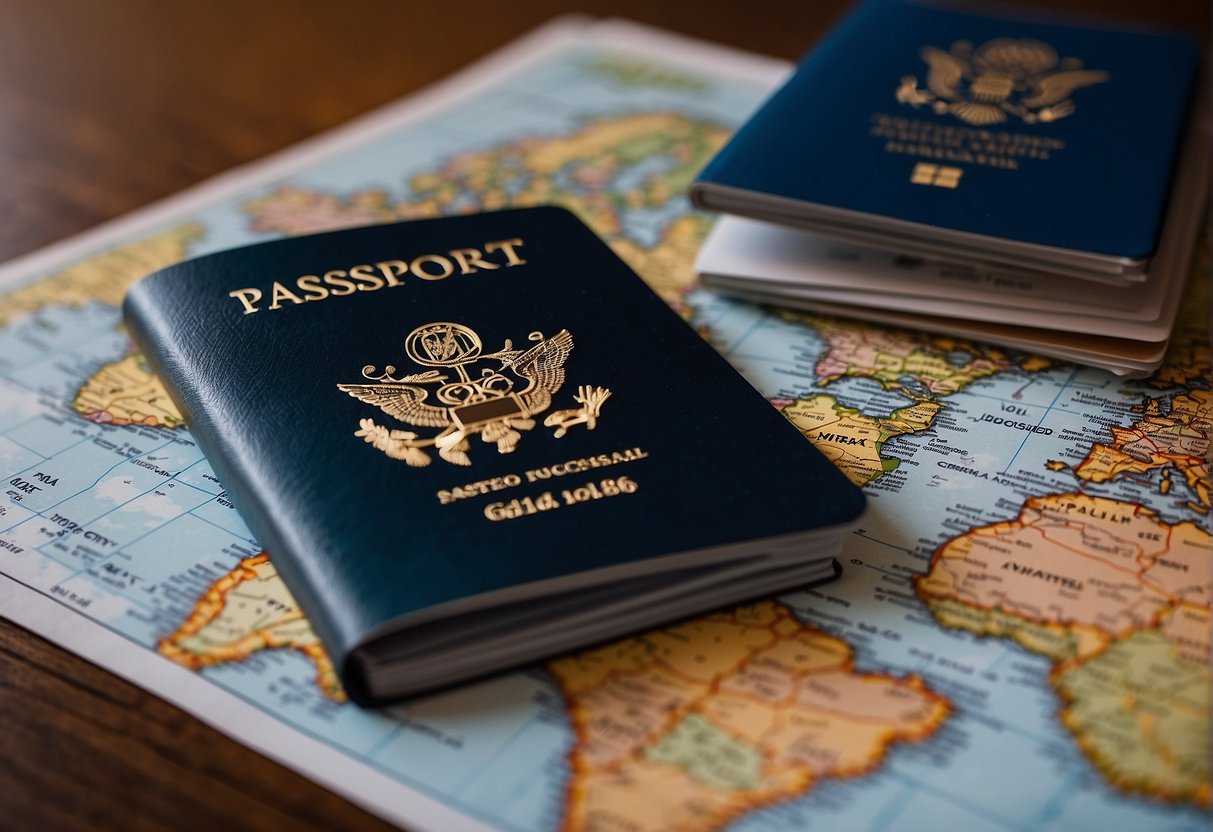
In addition to legal paperwork, one’s health and safety are of paramount importance. This includes staying informed about the various health advisories, such as vaccinations and travel health notices for their destinations. Understanding local laws and customs, as well as being aware of travel advisories, can help travelers prepare for the cultural and legal landscapes they will encounter upon arrival and throughout their stay.
Upon returning home, travelers may need to adhere to specific re-entry protocols, which can include customs declarations or even quarantine requirements, depending on the current global health situation. Being well-prepared for these procedures will ensure a smoother transition back to daily life after international travel.
Key Takeaways
- Secure necessary legal documentation and adhere to the specific entry requirements of the destination country.
- Understand health advisories and safety guidelines to ensure personal well-being while abroad.
- Be informed of the return protocols to facilitate a seamless transition back to your home country.
Legal Documentation
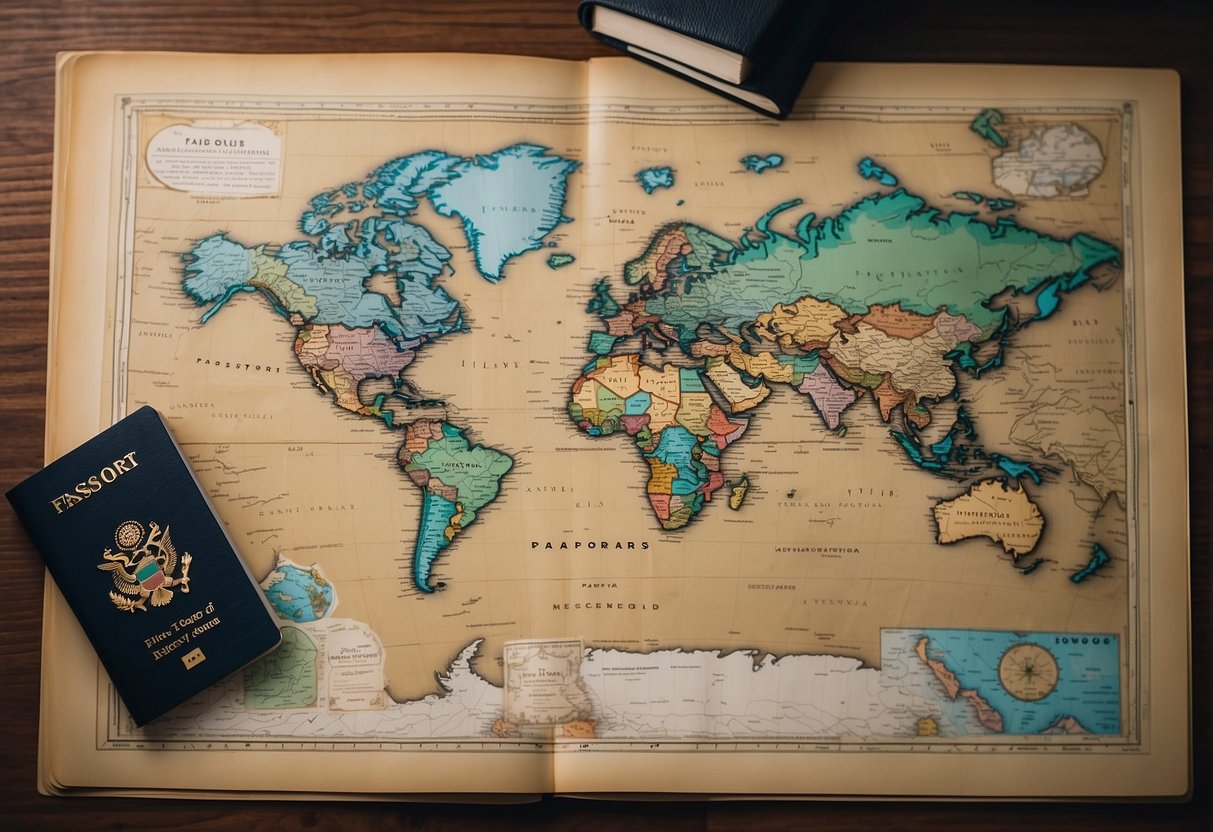
Acquiring the correct legal documentation is essential for international travel. U.S. citizens must have up-to-date and valid documents to go abroad, including passports and, where necessary, visas.
Passport Validity
A passport is the fundamental travel document for U.S. citizens embarking on international trips. It must be valid for at least six months beyond the return date of travel. Some countries require this extended validity, so it’s crucial to check the passport expiration date and renew if needed well before travel.
Visa Requirements
For many destinations, U.S. citizens must obtain a visa. The nature of the visa—whether it’s for tourism, business, or study—along with the duration of stay, depends on the destination country’s regulations. It’s vital to research and secure visas well in advance, as processing times can vary considerably.
Other Travel Documents
In addition to a passport and possibly a visa, travelers may need other documents. This can include documents proving sufficient funds for the trip, parental consent for minors traveling without parents, or special authorization such as a notarized letter if traveling with a child and only one parent. While a Real ID is beneficial for domestic flights, it cannot replace a passport for international travel. Always verify specific document requirements for your destination country.
Health and Safety
When planning international travel, prioritizing health and safety is essential. Understanding current COVID-19 regulations, being up-to-date with required vaccinations, and having access to emergency information are crucial steps in ensuring a secure journey.
COVID-19 Regulations
International travelers must stay informed about the latest COVID-19 guidance. As of late, individuals entering the United States are not required to present a negative COVID-19 test. However, regulations can vary by destination and may include mask mandates, testing requirements, or quarantine periods upon arrival. Always check the CDC’s travel health notices before departure to ensure compliance with the most current guidelines.
Vaccinations
In addition to COVID-19 vaccines, several other routine and travel-related vaccinations may be necessary or recommended when traveling abroad. These can include shots for diseases such as yellow fever or hepatitis A and B. Before traveling, one should verify vaccination requirements or suggestions by consulting reliable travel health resources.
Emergency Information
Every traveler should prepare for potential health emergencies by having comprehensive medical insurance for international travel. This includes being aware of how to receive medical care abroad and understanding insurance coverage. For peace of mind, comparing travel insurance plans is advisable to ensure that one selects a policy that meets their individual needs, whether it’s for emergency medical expenses or medical evacuation.
Destination Knowledge
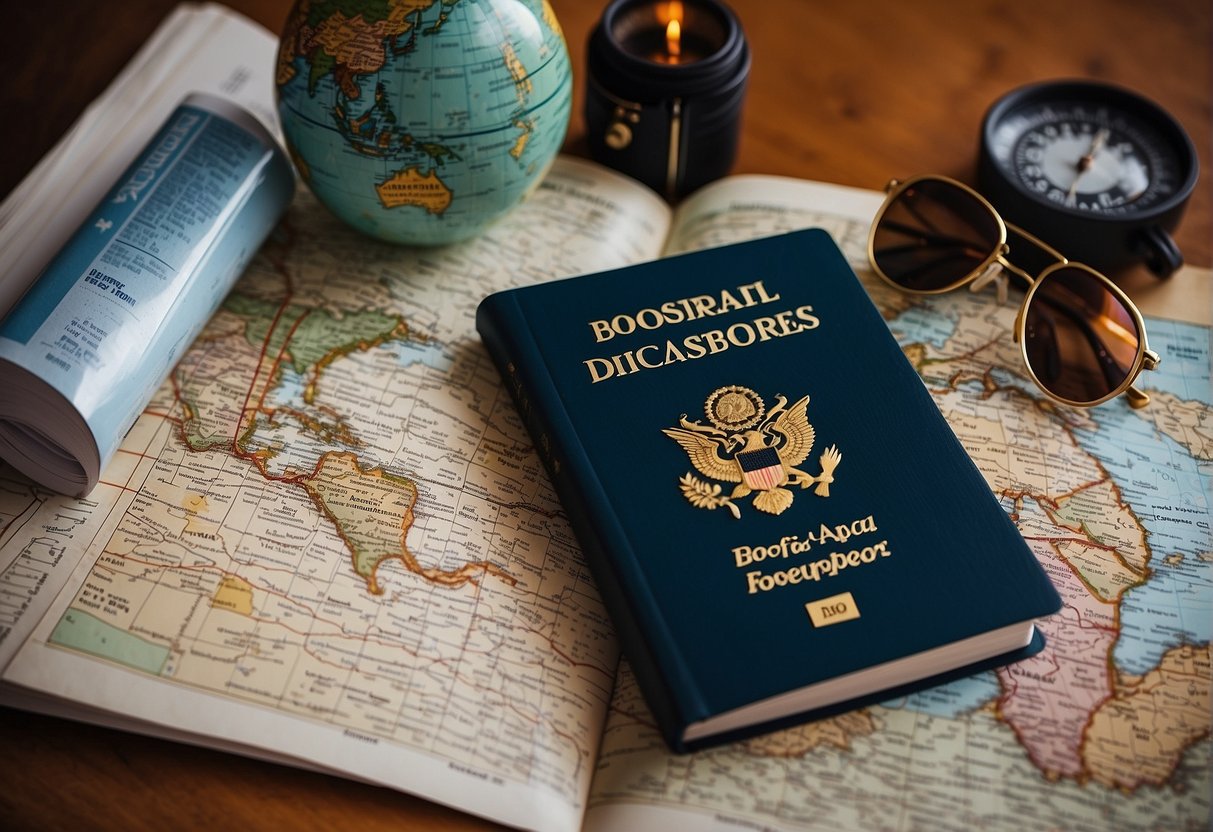
Before embarking on international travel, it is crucial to obtain a solid understanding of the destination. This encompasses not only country-specific information but also cultural norms and local laws, which can considerably differ from one’s home country.
Country-Specific Information
Every country has unique entry and exit requirements which travelers should familiarize themselves with. Relevant details include visa necessities, vaccination mandates, and customs regulations. It’s advisable for travelers to learn about the destination they plan to visit in terms of safety concerns, health advisories, and any travel alerts or warnings that may be in place.
Cultural Norms
Being aware of and respecting local customs and traditions can significantly enhance travel experiences. This includes understanding behavioral expectations such as dress codes, gestures, and dining etiquette. It’s about recognizing the importance of cultural sensitivity, which aids in fostering positive interactions and avoiding misunderstandings.
Local Laws
Travelers must adhere to the local laws of their destination country. Laws may be vastly different from those in a traveler’s home country, including those pertaining to drugs, alcohol, public behavior, and internet use. For instance, certain behaviors considered acceptable at home may be illegal overseas, and violating these laws can lead to severe penalties. Accessing comprehensive country-specific information is a key step in understanding and complying with these laws.
Travel Advisories
When planning international travel, it’s crucial to consider the latest travel advisories issued by the Department of State. These advisories provide essential information on safety levels, embassy resources, and country-specific guidelines essential for informed travel decisions.
State Department Updates
The Department of State periodically releases updates regarding international travel. They include changes in visa requirements, travel alerts, and significant announcements affecting travellers’ plans. For recent updates, travellers should visit the Travel Advisories page to stay informed about the latest developments.
Safety Levels
Travel advisories are categorized into four main safety levels to communicate the risk or safety concerns of travelling to specific countries:
- Level 1: Exercise Normal Precautions
- Level 2: Exercise Increased Caution
- Level 3: Reconsider Travel
- Level 4: Do Not Travel
These levels are determined based on factors such as crime rates, political stability, and health concerns. Travellers should check the current safety level of their destination before departure.
Embassies and Consulates
The Department of State operates embassies and consulates worldwide to assist American citizens during their travels. If travellers encounter problems such as lost passports or emergencies, they can rely on the nearest U.S. embassy or consulate for support. Detailed contact information and locations can be easily accessed for planning and emergency purposes.
Preparing for Departure
International travel requires meticulous planning to ensure a smooth and stress-free trip. Proper documentation and awareness of entry requirements are crucial for a trouble-free departure.
Checklist Before Travel
Before setting out on your journey, confirm that all necessary items are packed. This includes travel documents, appropriate clothing, and any country-specific items that may be needed. For detailed packing guidance, consult a comprehensive international travel pack list. As a visual aide:
- Travel Documents: Passport, visas, travel insurance.
- Clothing: According to destination climate.
- Electronics: Chargers, converters/adapters.
- Personal Items: Medications, toiletries, travel aids.
Border Requirements
Each country has specific entry requirements that can include visa documentation, vaccination proofs, or other health-related documentation. For U.S citizens, certain documents are mandatory for international travel by land, sea, or air. Before departure, verify these requirements to ensure compliance with the destination’s laws. Find a thorough travel checklist for international travel that may include the latest updates on border requirements.
Trusted Traveler Programs
Enrollment in trusted traveler programs can facilitate quicker clearance through borders for frequent travelers. These programs, such as the Global Entry for U.S. citizens, reduce wait times and streamline the travel process. For more details on how to sign up and the benefits involved, consult a resource providing tips for international travel. When applying, travelers should ensure that their information is consistent across all travel documents.
Remember, being well-prepared is key to enjoying international travel. Perform due diligence on luggage specifications too, particularly if you have connecting flights where different rules may apply. For specifications and limits, check the information on luggage size for international travel. By following these guidelines, travelers can embark on their international adventures with confidence.
Upon Arrival
Upon landing in a new country, international travelers must navigate customs and immigration procedures, arrange transportation to their accommodations, and ensure they comply with all entry requirements.
Customs and Immigration
Upon entering the destination country, visitors must present passport and visa documentation if required. They may also need to show proof of vaccination or proof of accommodation. Officials will inspect these documents and may ask questions about the purpose and duration of the stay. It’s important for travelers to declare any items that are subject to customs duty, such as certain international travel prescription drugs, and adhere to restrictions on liquids.
Transportation
After clearing immigration and customs, visitors must secure transportation to their accommodation. Options can include taxis, rideshare services, public transport, or rental cars. Travelers should ensure they have the correct international travel adapter plug for charging devices and use trusted services for hiring a vehicle or booking rides.
Accommodations
Upon arrival at the chosen lodging, whether a hotel, hostel, or rental, presenting proof of reservation is often required. Travelers should also be prepared to provide a credit card or cash deposit for incidentals. Using a credit card designed for international travel can avoid issues with currency exchange and provide additional security.
Returning Home
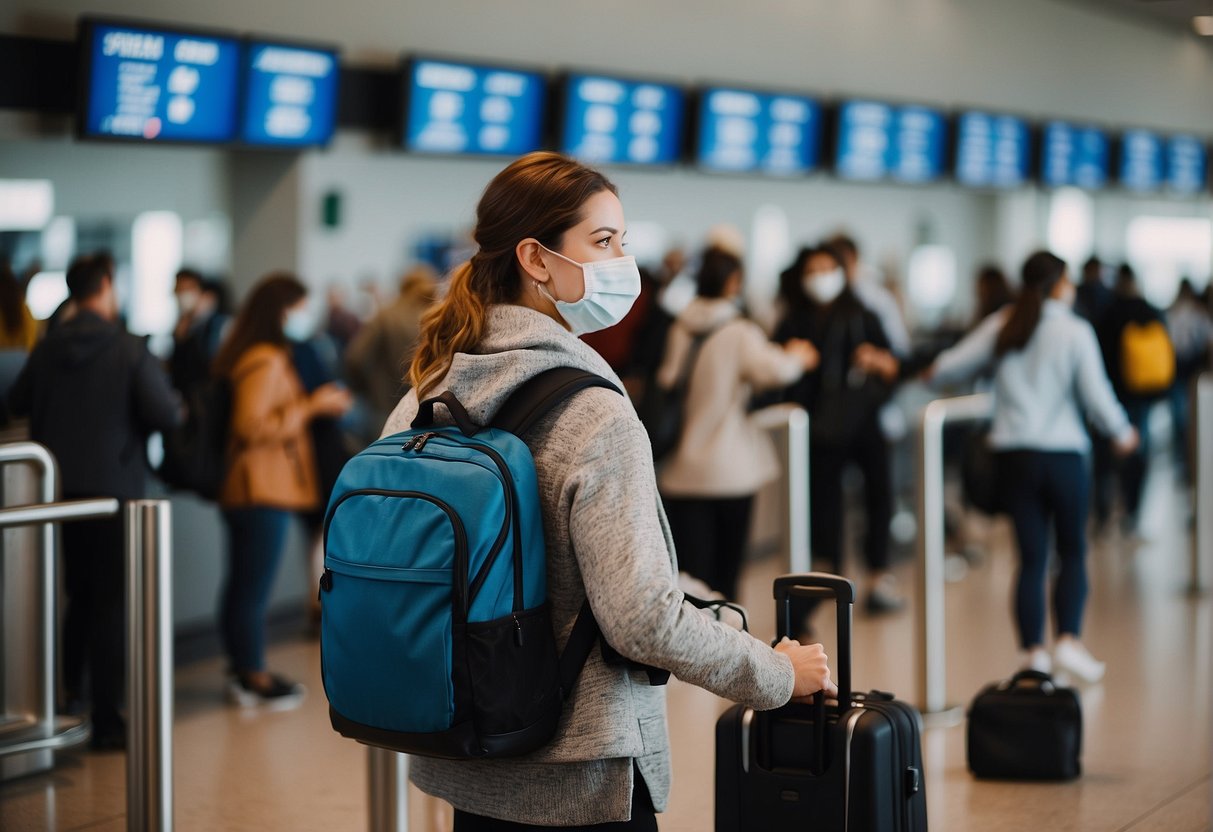
When traveling internationally, understanding the re-entry processes and reporting requirements is crucial for a smooth transition back to one’s home country. These steps are defined by specific regulations, which may vary depending on the destination and duration of stay abroad.
Re-entry Processes
Upon returning to the United States, travelers must be prepared for the re-entry processes enforced by U.S. Customs and Border Protection (CBP). One must declare any items acquired overseas, adhering to the exemption allowance not used in the past 30 days. For those returning from a trip lasting at least 48 hours, this exemption applies, but differently if coming from Mexico or the U.S. Virgin Islands. For detailed country-specific information, travelers should always refer to the country information page on travel.state.gov before departure.
Reporting Requirements
The Department of State strongly advises U.S. citizens to stay informed of any changes in travel advisories and local regulations of their travel destinations. Updates on COVID-19 travel advisories and entry requirements can be found on the United States Department of State. As policies can frequently change, it is critical for travelers to review the latest guidance from the Department of State and any relevant authorities where they have traveled.
Frequently Asked Questions
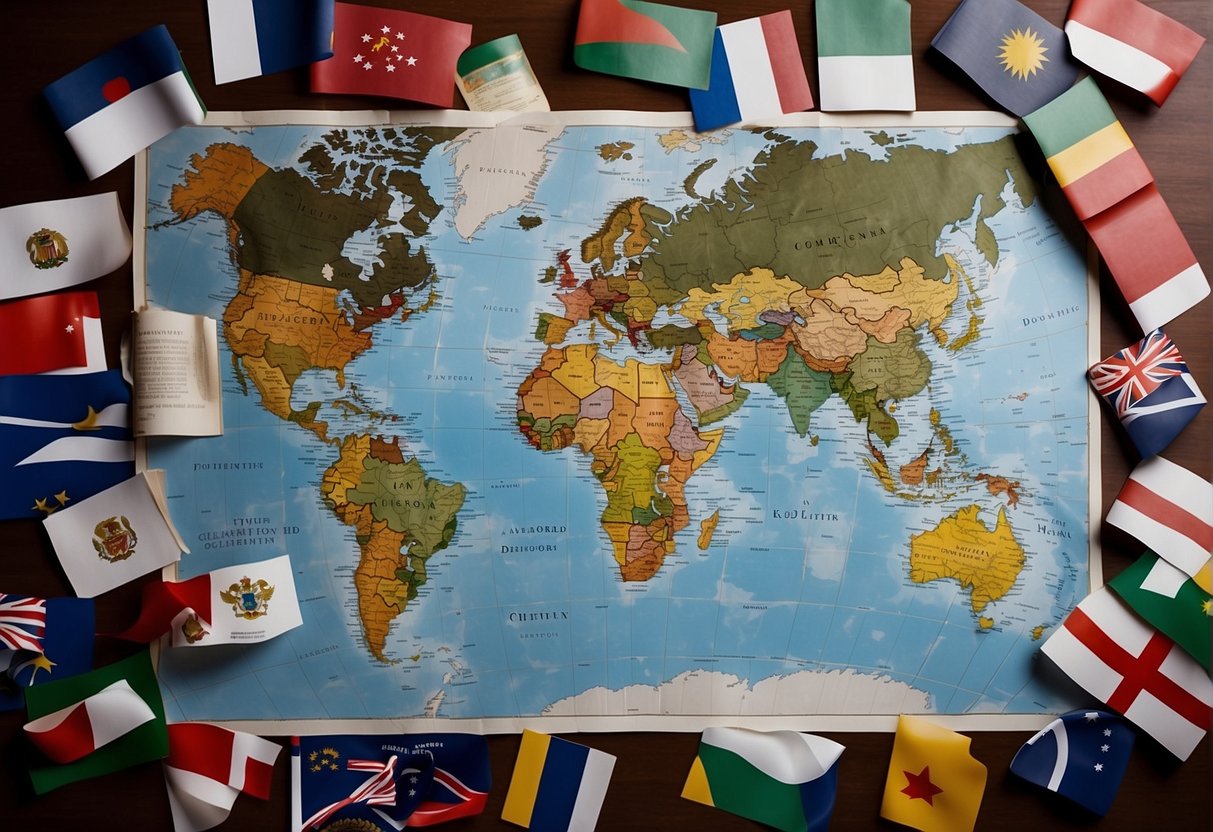
International travel often requires careful preparation and knowledge of the necessary documentation. This section answers some common questions regarding international travel requirements.
What documents are required to travel internationally?
To travel internationally, travelers typically need a passport, which should be valid for at least six months beyond the date of expected return. Some countries may also require a visa or entry permit.
Do travelers need a visa for all international destinations?
Visa requirements vary by country and the traveler’s nationality. While some countries offer visa on arrival or visa-free entry to certain nationalities, others require a visa to be obtained in advance.
What is the essential checklist for international travel documents?
The essential checklist for international travel documents includes a valid passport, the appropriate visas, travel insurance information, and any additional entry documents required by the destination country, such as proof of onward travel.
Are there specific international travel requirements for U.S. citizens?
U.S. citizens should be aware of the entry and exit requirements for their destination, as these can include visas, proof of certain vaccinations, or other specific documents.
Have COVID-19 restrictions affected international travel requirements?
Yes, COVID-19 restrictions have affected international travel, with many countries implementing health screenings, quarantine mandates, and vaccination requirements. The conditions continue to evolve, so staying updated with the latest travel guidance from authoritative sources is crucial.
What vaccinations or health certifications are required for international travel?
Required vaccinations or health certifications vary by destination. Commonly required vaccinations include Yellow Fever, Typhoid, and Hepatitis A, and some countries now require proof of a COVID-19 vaccination. Always check with your destination’s health department or the CDC’s travel health notices for the most current requirements.
Leave a Reply